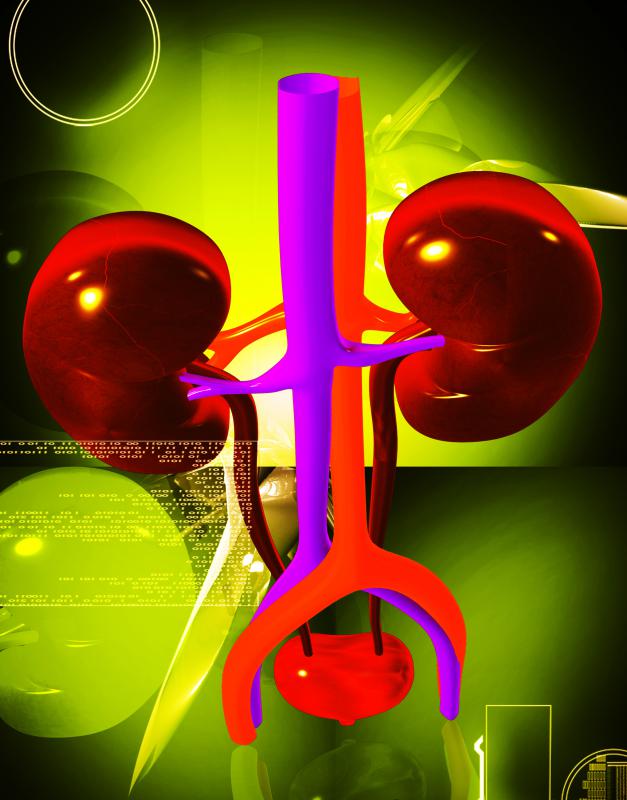At WiseGEEK, we're committed to delivering accurate, trustworthy information. Our expert-authored content is rigorously fact-checked and sourced from credible authorities. Discover how we uphold the highest standards in providing you with reliable knowledge.
What Is a Ureteral Stricture?
A ureteral stricture is a narrowing of the ureters. There are a number of different causes of this condition, including cancerous growths, kidney stones, or the presence of scar tissue, either inside the ureters or in the areas around them. If the cause of the stricture is benign, treatment is usually simple and may involve outpatient surgery. Seriously obstructed ureters or those that are obstructed because of cancer require more extensive treatment.
In most cases, a ureteral stricture forms because the patient has had kidney stones. The stones themselves may cause strictures by becoming lodged in the ureters, or they may injure the ureters on their way out of the patient’s body, leaving scar tissue. Ureteroscopy, which is used to treat kidney stones, can also damage the ureters, which may cause scarring. Additionally, it is possible for a patient to develop an intrinsic stricture as the result of cancer within the ureters.

Patients can also develop what is known as an extrinsic stricture, which arises when something on the outside of the ureters presses against them. There are many possible causes for this, including scar tissue or swelling in nearby organs. Cancer of other organ systems can also lead to a stricture in the ureters if the tumor presses against one or both of them.

Symptoms of ureteral stricture can vary considerably from patient to patient, often depending on the underlying cause. A general feeling of illness is common, as is pain in the lower back or abdomen. A patient may also experience nausea, vomiting, and possibly fever.
Treatment depends on the severity of the condition. Mild cases can often be fixed with an outpatient surgical procedure in which a stent is inserted into the affected ureter. The stent holds the ureter open so that urine can flow from the kidney to the bladder without obstruction. Stents can be worn for three months, after which they are removed or replaced.

More severe cases can require a variety of other surgical treatments. The scar tissue, either inside or outside the ureter, may need to be cut away. Rarely, the ureter itself may need to be repaired, often with a graft from the patient’s intestinal tract. If urine has backed up into the kidneys, it may need to be removed by inserting a needle directly into the kidney and draining the fluid.
AS FEATURED ON:
AS FEATURED ON:













Discussion Comments
I think I had a similar thing. I had it since birth and am now 16, the doctors never knew what was causing me pain, vomiting etc until only a few years ago when they diagnosed it and operated on me. I would get pain and other symptoms of this in episodes that got worse but less frequent as I got older. Near the end it was the worst pain I have ever experienced, and probably will experience. I also found that without the problem I became more confident in my actions since there were no more threats of sudden and extreme pain.
I think there was another treatment of removing the "kink" (as my doctor called it) and shortening the ureter to account for this loss.
Post your comments